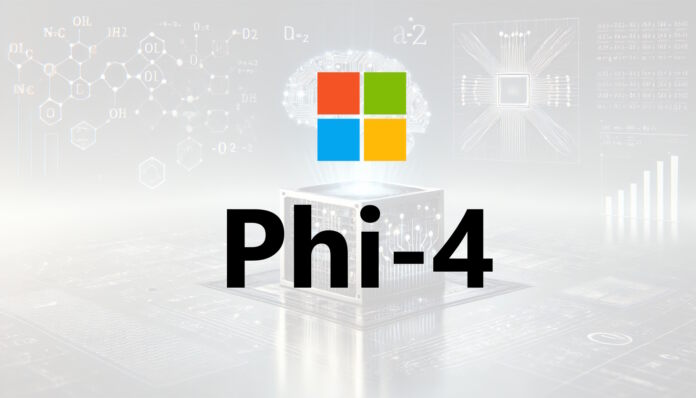Microsoft Releases Open-Source Phi-4 AI Model

On Wednesday, Microsoft made a significant move in the artificial intelligence landscape by open-sourcing its Phi-4 small language model. This model, which focuses on reasoning, was initially launched last month but was only accessible through the Azure AI Foundry. Microsoft had promised to release the source code to the public, and now interested users can find it on Hugging Face. This release allows both academic and commercial users to explore the capabilities of this advanced AI model.
Accessing the Phi-4 AI Model
Shital Shah, a member of Microsoft AI’s technical team, announced the release of the Phi-4 AI model’s weights on X, formerly known as Twitter. The model is now available under the MIT license, which permits both academic and commercial use. Users can easily access the model through its listing on Hugging Face. This open-source approach aligns with Microsoft’s commitment to fostering innovation and collaboration in the AI community.
The Phi-4 model was developed as an improvement over its predecessor, Phi-3, which was released eight months earlier. It boasts a context window of 16,000 tokens and was trained on an extensive dataset of 9.8 trillion tokens. The training data includes high-quality educational resources, synthetic data across various subjects, academic books, and Q&A datasets. This diverse dataset enhances the model’s ability to handle complex reasoning tasks, particularly in mathematics.
It is essential to note that Phi-4 is a text-only model, meaning it processes text for both input and output. With 14 billion parameters, it is built on a dense decoder-only Transformer architecture, which contributes to its advanced reasoning capabilities. Microsoft has shared benchmark scores indicating that Phi-4 outperforms the Gemini 1.5 Pro model in solving math competition problems, showcasing its potential for academic and practical applications.
Features and Safety Measures
The Phi-4 AI model is not just about performance; it also comes with a suite of safety features designed to help developers manage AI risks. Microsoft offers access to the model through its Azure AI Foundry, which includes tools for prompt shielding, groundedness detection, and content filtering. These features are crucial for ensuring that AI applications are safe and reliable.
Developers and enterprises can leverage these safety capabilities by integrating them into their applications using Microsoft’s application programming interface (API). This integration allows for a more controlled environment when deploying AI solutions, addressing concerns about misuse or unintended consequences. By providing these tools, Microsoft aims to promote responsible AI usage while encouraging innovation in the field.
As the AI landscape continues to evolve, the release of the Phi-4 model represents a significant step forward. It not only enhances the capabilities available to researchers and developers but also emphasizes the importance of safety and ethical considerations in AI development.
Implications for the AI Community
The open-sourcing of the Phi-4 model has far-reaching implications for the AI community. By making this advanced model publicly available, Microsoft encourages collaboration and innovation among researchers, developers, and businesses. Open-source models like Phi-4 can accelerate advancements in AI by allowing users to build upon existing work, share findings, and contribute to the collective knowledge base.
Moreover, the availability of a high-performance model like Phi-4 can democratize access to advanced AI technologies. Smaller organizations and academic institutions, which may lack the resources to develop their own models, can now utilize Phi-4 for various applications. This accessibility can lead to new discoveries and applications in fields such as education, healthcare, and beyond.
As AI continues to integrate into various sectors, the importance of responsible and ethical AI development cannot be overstated. Microsoft’s commitment to providing safety features alongside the Phi-4 model sets a precedent for other companies in the industry. It highlights the need for transparency and accountability in AI development, ensuring that these powerful tools are used for the benefit of society.
Observer Voice is the one stop site for National, International news, Sports, Editor’s Choice, Art/culture contents, Quotes and much more. We also cover historical contents. Historical contents includes World History, Indian History, and what happened today. The website also covers Entertainment across the India and World.

